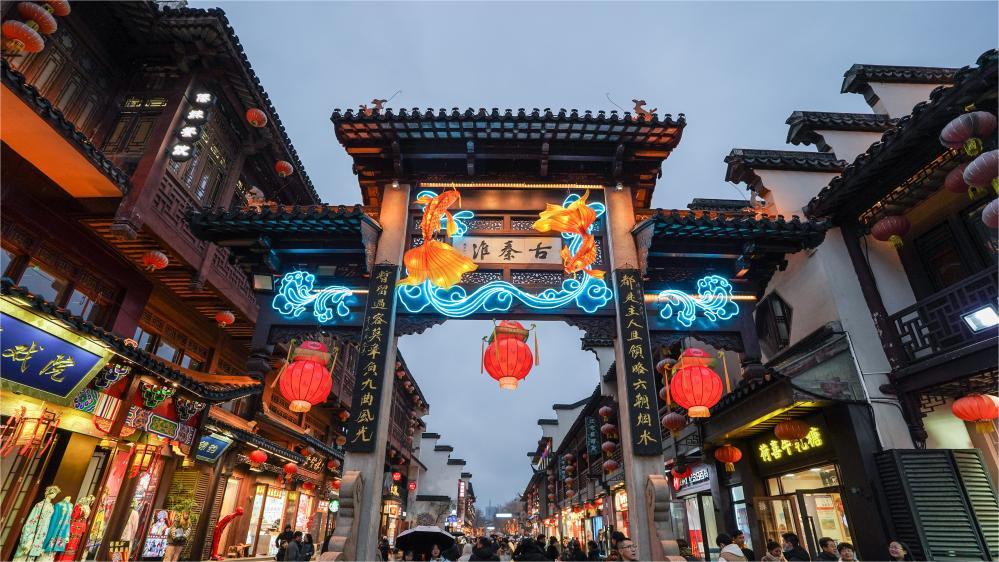Farewell to China's homecoming motorbike fleets
GUANGZHOU, Feb. 6 (Xinhua) -- Being just one of a handful of homeward-bound riders that day, Huang Xiandi had no problem parking his motorbike at a highway service station for a cup of tea.
The service station along the No. 321 National Highway used to be chock-a-block ahead of the Spring Festival, packed with motorcyclists taking some well-earned respite on their long journeys home.
"Now the fleet is gone," said Huang. "Some take the high-speed railway to go home and others drive their own cars."
The Spring Festival, or Chinese New Year, is often called the largest annual human migration on the planet as hundreds of millions of Chinese return to their hometowns for the most important family gathering of the year.
In south China's manufacturing hub Guangdong Province, the spectacular sights of motorbike fleets -- migrant workers riding hundreds of miles to nearby provinces and regions like Guangxi, Guizhou and Sichuan -- were once a fixture of the seasonal travel rush known as "chunyun."
Huang, who left his hometown in rural Guangxi to work at a lamp factory in Guangdong, has borne witness to the shrinking of the motorbike fleets over the years. This year, he failed to find a co-rider, again.
"I've taken a lonely ride home for several years now. I've grown used to it," he said.
According to the transport department of Guangdong, there were a record 1.1 million motorcyclists exiting and entering the province around the Spring Festival in 2013. That number has since declined.
In the motorbike fleets era, highways would set up service points that offered free congee, ginger tea, medicine, and motorcycle maintenance. As biker numbers have dwindled, the service has been reduced to just free hot tea, said Liang Wenzhi, a traffic police officer in the city of Zhaoqing, Guangdong.
"Many migrant workers have bought cars, so while the number of motorcyclists has declined, the traffic flow of cars leaving Guangdong has increased considerably ahead of the festival," Liang said.
The opening of high-speed railways linking Guangdong and nearby Guizhou and Guangxi in 2014 is another reason for the declining popularity of motorcycle journeys.
The journey from Huang's factory to his hometown used to take nine hours on a motorbike. Now it is three hours on a high-speed train.
Huang has also bought a car. His, however, is at home. "In the past I rode a motorbike home to save money. I still do it, but it's because I enjoy the ride."
Photos
Related Stories
Copyright © 2024 People's Daily Online. All Rights Reserved.









